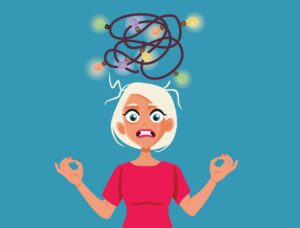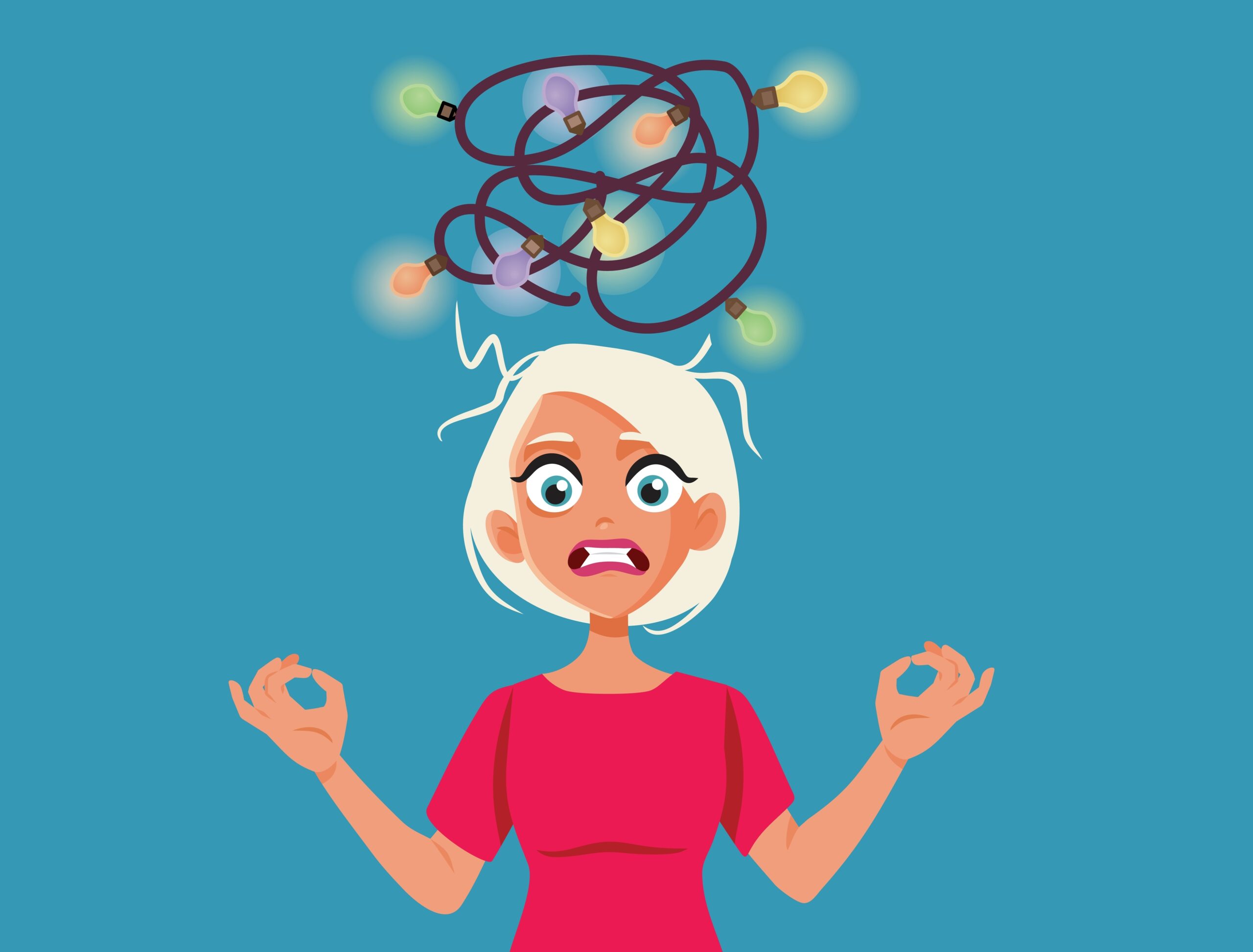It May Be Tiny, But It Packs a Punch – Harnessing the Habenula for Brain Awareness Week
Every March, organizations around the world promote Brain Awareness Week to highlight the importance of neuroscience and brain health.
In alignment with this goal, the team at Fresh Tri wants to bring attention to an often-overlooked brain structure called the habenula. New research has shown the significant role this tiny region plays in mental health and decision-making.
Understanding the function of the habenula provides important insights that have informed the development of Fresh Tri’s proprietary Iterative Mindset Method™. This innovative approach helps individuals recognize and mitigate negative thought patterns and behaviors, ultimately improving mental well-being.
In this post, we will explore the fascinating science behind the habenula, how it relates to common mental health challenges, and how Fresh Tri’s method can help you optimize this critical part of your brain.
The Habenula: An Overlooked Brain Structure
The habenula is a tiny, almond-shaped region near the center of the brain. Despite its small size, this structure has an outsized influence on emotion, motivation, and motor function. The habenula serves as a relay station, connecting areas of the limbic system involved in processing pleasure and aversion with regions of the midbrain that produce dopamine and serotonin.1
Through these connections, the habenula regulates our reward system and helps modulate mood. Increased habenula activity is linked to decreased dopamine and serotonin, which can inhibit motivation and drive depression. This understanding has led researchers to investigate the role of the habenula in mental health disorders like depression, bipolar disorder, schizophrenia, and addiction.
Fresh Tri’s Iterative Mindset Method™
At Fresh Tri, our mission is to empower individuals to nurture mental resilience, build lasting health habits, and lead their most fulfilling lives. Our Iterative Mindset Method™ (IMM) combines evidence-based cognitive-behavioral techniques with lifestyle and mindfulness practices that support overall well-being.
The method specifically targets regulating habenula activation associated with negative thought patterns. We refer to these experiences as “habenula events”—sudden surges in habenula activity that can create a downward spiral into anxiety, fear, or regret. Our goal is to give individuals the tools to recognize these moments and intentionally shift their mindset to more constructive thoughts.
The Iterative Mindset Method™ has helped many clients overcome long-standing struggles with motivation, addiction, and depression through improved cognitive control and resilience.
What is a Habenula Event?
A habenula event occurs when the habenula is highly activated, typically by stimuli that signal disappointment, failure, or rejection. This triggers downstream decreases in dopamine and serotonin, which inhibit motivation and drive depressive thinking. Habenula events create an urge to avoid risk or withdraw.
Common triggers include not reaching a goal, not getting a desired job, or failure on a project. The higher significance someone assigns to an outcome, the stronger the corresponding habenula event when hopes are not met. These experiences are normal, but recurring habenula events can spur rumination and downward mental spirals characteristic of anxiety and depression.
Strategies for Mitigating Habenula Events
The IMM equips clients with research-backed techniques to recognize and purposefully respond to habenula events, preventing negative thought patterns from taking hold.2
Mindfulness practices help identify initial surges in habenula stimulation and create space between stimulus and response. Cognitive-behavioral exercises then reframe automatic negative perspectives into more balanced, constructive reflections. We also provide support to implement lifestyle changes that reduce daily stressors and boost mental resilience.
Our approach empowers individuals to consciously shape their mindset response to challenges instead of getting caught in reactive negative cycles. With practice, clients can get ahead of habitual thought patterns before they escalate.
Case Studies: Applying the Iterative Mindset Method
John struggled with alcohol addiction for years. He shared that rejection experiences were some of his greatest triggers for drinking. Through the IMM, he learned to identify the flood of negative thoughts and emotions following a romantic breakup as a habenula event.
Recognizing this reaction allowed John to implement mindfulness and cognitive-behavioral tools to process the experience in a more deliberate, purposeful way. With ongoing practice, these strategies gave him increasing control over destructive impulses, supporting sobriety and improving his mental well-being.
Maria used Fresh Tri’s IMM to overcome constant self-criticism that discouraged her at work. She described regularly experiencing habenula events where minor mistakes on projects spiraled into feeling incompetent and worthless. The IMM equipped Maria with strategies to mitigate these unconstructive thought patterns. Over time, she gained confidence in making positive mindset shifts that allowed her to see setbacks as learning opportunities.
The Future of Habenula Research and Mental Health
Ongoing studies continue to reveal the habenula’s vital role in behavioral patterns and regulation and neuropsychiatric conditions. Researchers are also investigating the potential of targeting the habenula through medications or deep-brain stimulation as a therapy approach for treatment-resistant depression and addiction.3
These advances underscore the importance of initiatives that provide mental health education and destigmatize seeking support. As our understanding of brain structures like the habenula grows, it is our collective responsibility to utilize these insights in service of mental wellness and human flourishing.
Harness Your Habenula with Fresh Tri
We hope this post provided a helpful introduction to the significance of the oft-overlooked habenula. Our Iterative Mindset Method™ leverages the latest research on how this tiny center in the brain drives emotions, motivation, and decision-making. You can unlock greater mental resilience and fulfillment by learning to recognize and thoughtfully respond to habitual negative patterns.
We encourage you to explore the resources on our website to continue your learning journey and download the Fresh Tri app to incorporate the IMM into your daily life. Together, through advancing brain research and its application, we can cultivate the awareness and tools to live mentally healthier lives.
References
- Hikosaka, O. (2010). The habenula: From stress evasion to value-based decision-making. Nature Reviews Neuroscience, 11(7), 503-513. https://doi.org/10.1038/nrn2866
- Proulx, C. D., Hikosaka, O., & Malinow, R. (2014). Reward processing by the lateral habenula in normal and depressive behaviors. Nature Neuroscience, 17(9), 1146. https://doi.org/10.1038/nn.3779
- Germann, J., Mameli, M., B. Elias, G. J., Loh, A., Taha, A., Gouveia, F. V., Boutet, A., & Lozano, A. M. (2021). Deep Brain Stimulation of the Habenula: Systematic Review of the Literature and Clinical Trial Registries. Frontiers in Psychiatry, 12. https://doi.org/10.3389/fpsyt.2021.730931













